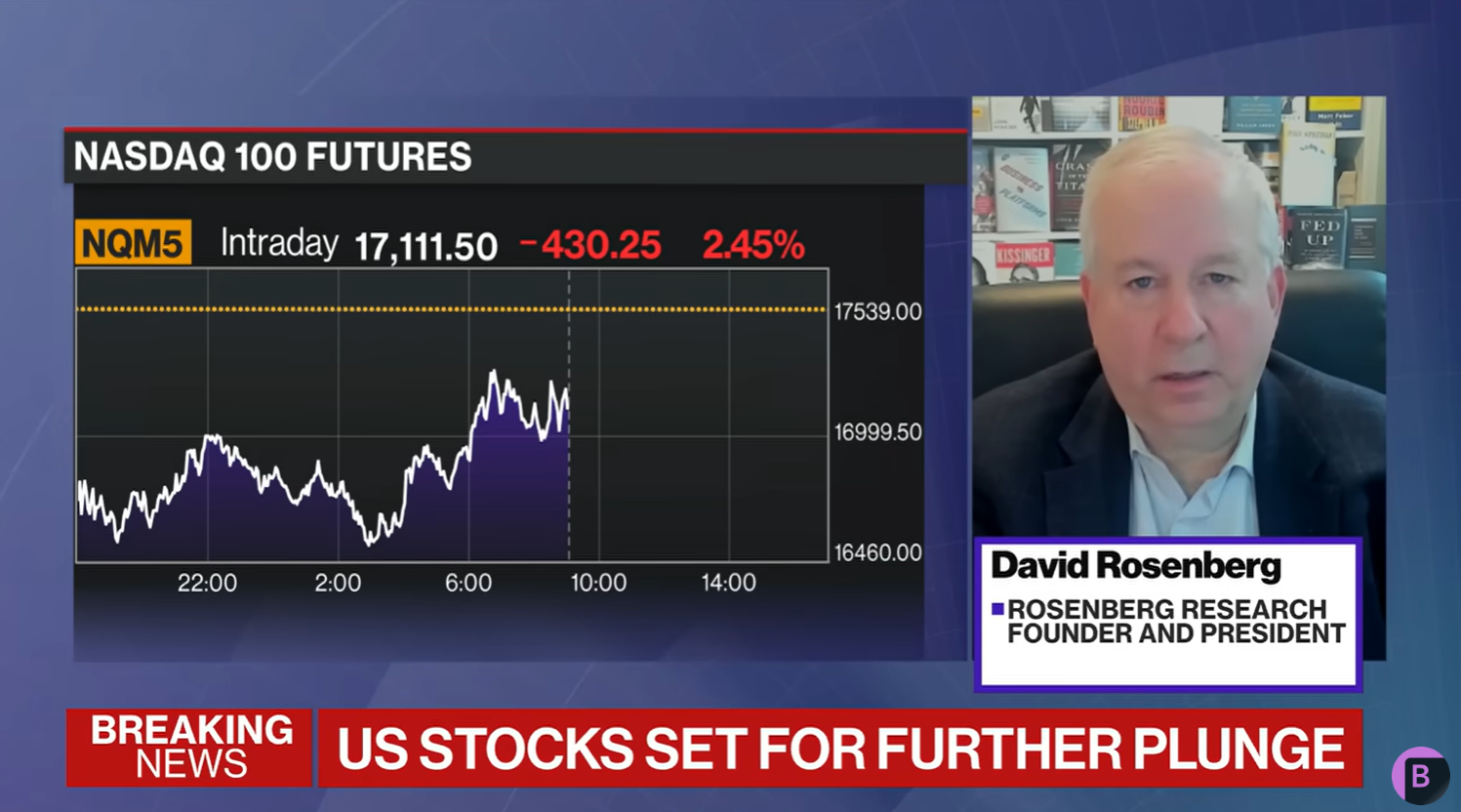
Leveraging Market Analysis for Informed Investment Decisions
June 5, 2024
Market analysis stands as a cornerstone of strategic investment planning. It provides investors and financial advisors with essential insights into market dynamics, consumer trends, and shifts within the financial landscape. This knowledge is akin to possessing a detailed map when navigating through uncharted territories—it guides investors towards seizing potential opportunities while circumventing risks that may not be immediately apparent.
Market Analysis in Investment Strategy: A Crucial Tool
Understanding the intricacies of market analysis is akin to having a navigator in the complex world of investing. It extends beyond mere data compilation; it’s about deeply understanding the forces that drive market movements and investor behavior. For an active investor, this is comparable to preparing for a major event—knowing not just who will attend but their preferences, behaviors, and potential impact on the event’s success.
In the realm of investment strategy, the importance of market analysis cannot be overstated. Imagine navigating a ship without a compass or a map; you might know the destination but not the safest or fastest route. Market analysis ensures that investors are well-equipped with the knowledge to make strategic decisions, optimizing their paths toward financial goals.
Why Market Analysis is Critical for Investment Strategy
Navigating the Competitive Landscape: Just as a business must understand its competitors, investors need insights into market movements, investment trends, and potential disruptors. This understanding aids in pinpointing where opportunities for high returns lie and what risks might threaten investment performance.
Spotting Opportunities and Risks: Through careful analysis of market trends and investor sentiment, market analysis reveals both burgeoning opportunities for growth and potential market downturns. This dual focus enables proactive strategy adjustments, ensuring investors can capitalize on emerging trends while shielding their portfolios from volatility.
At Rosenberg Research, we delve into the symbiotic relationship between market analysis and investment strategy through detailed articles and case studies. These narratives highlight the transformative power of market analysis in sculpting successful investment strategies, showcasing its vital role in both recognizing growth avenues and mitigating investment risks.
Market analysis is not merely a preliminary step in the investment process; it is the foundation upon which resilient, informed investment strategies are built. It empowers investors and financial advisors to traverse the financial market landscape with confidence, armed with insights that catalyze sustainable growth and strategic agility.
Analyzing Customer Behavior Through Market Research
Understanding the pulse of the market and investor sentiment is paramount for financial advisors and active investors. Market research, particularly in analyzing customer (or investor) behavior, serves as a critical tool in this endeavor. Techniques like surveys and social media monitoring not only unveil preferences and trends but also highlight the underlying attitudes that drive market movements.
Consider the scenario of launching a new investment product. Prior to introduction, employing surveys can reveal potential investor interest, risk tolerance, and the desired financial outcomes. This direct feedback acts as a cornerstone for tailoring investment solutions that resonate well with target clients, enhancing the chances of successful adoption.
For instance, a wealth management firm considering the introduction of environmentally sustainable funds might use targeted questionnaires to gauge client interest in ESG (environmental, social, and governance) investing. Discovering a high demand among their client base for such investment opportunities can lead to the strategic expansion of their portfolio offerings, aligning with client values and market trends.
Furthermore, monitoring discussions and sentiment on platforms like LinkedIn or financial forums provides a real-time barometer of investor sentiment and market trends. This continuous stream of data helps in adjusting strategies promptly in response to shifting investor attitudes or emerging market events, ensuring that advisory services remain relevant and proactive.
Social media monitoring, in particular, offers unfiltered insights into the investor community’s perceptions, concerns, and expectations. Analyzing sentiment and feedback on investment products or market conditions enables advisors to refine their communication strategies, address prevalent concerns, and highlight how their offerings align with investor needs.
Integrating these research methods into strategic planning not only sharpens the competitive edge for financial advisors but also significantly enhances client engagement and satisfaction. By actively responding to the insights garnered from market research, advisors can craft investment strategies that are both responsive and anticipatory of market dynamics.
In summary, the strategic application of market research to understanding investor behavior is not just about data collection. It’s about transforming insights into actionable strategies that anticipate market trends, cater to client preferences, and navigate through the complexities of investment landscapes. As we delve deeper into implementing strategic goals with market data, the emphasis remains on making informed, data-driven decisions that align with both client aspirations and market realities.
Strategic Application of Market Data in Investment Decisions
In the realm of investment, having access to detailed market research data is equivalent to possessing a comprehensive guide to navigating the financial markets. This data, encompassing investor behavior, market trends, and economic indicators, serves as a critical asset in formulating strategic investment goals. Here’s how financial advisors and active investors can utilize market data to inform and refine their investment strategies:
Identifying High-Potential Investment Areas
Market data aids investors in identifying sectors and industries poised for growth by analyzing trends in consumer behavior, technological advancements, and regulatory changes. This targeted analysis allows for the allocation of capital to areas with the highest growth potential, ensuring that investment efforts are concentrated where they are most likely to yield substantial returns.
Guiding Product and Strategy Development
For investment firms, insights from market data are invaluable in developing new financial products or adjusting investment strategies to meet evolving market conditions. For instance, recognizing a growing interest in sustainable investing can lead to the creation of ESG-focused funds, aligning product offerings with investor values and market trends.
The strategic alignment of product development with investor needs and market dynamics not only enhances the appeal of these offerings but also positions the firm as a forward-thinking leader in the investment community.
Strategically Responding to Market Dynamics
Integrating market research into strategic planning enables investors and advisors to adapt proactively to changes in the financial landscape. Whether it’s shifting sentiment towards certain asset classes or adjusting to macroeconomic shifts, leveraging market data ensures that investment strategies remain relevant and aligned with current market realities.
Competitive Advantage and Market Positioning
Understanding the competitive landscape through market research provides insights into the strategies and performance of peers, allowing investors to distinguish their approach and identify untapped opportunities. This comprehensive view supports strategic decision-making, enhancing the firm’s positioning in the market.
In conclusion, the strategic use of market data in investment decision-making is not merely about reacting to trends but about anticipating market movements and aligning investment strategies accordingly. By leveraging this data, investors and advisors can set informed, actionable goals that capitalize on market opportunities and navigate the complexities of the investment landscape.
Integrating Market and Competitor Insights into Investment Strategy
For investors and financial advisors, a comprehensive understanding of the market landscape and competitive dynamics is pivotal for strategic planning. This process involves a nuanced analysis of market conditions, investment trends, and the competitive behaviors impacting investment decisions. Here’s how active investors can leverage market and competitor analyses to refine their investment strategies:
SWOT Analysis in the Investment Context
A SWOT analysis, tailored for the investment sector, involves evaluating the strengths, weaknesses, opportunities, and threats associated with potential investment opportunities. This analytical framework aids in identifying not only the inherent advantages of investment prospects but also the risks and market gaps that could be capitalized on.
For example, an investor might use SWOT to evaluate a tech startup, identifying rapid innovation (strength), dependence on venture capital (weakness), growing demand for technology solutions (opportunity), and intense competition (threat). By applying these insights, investors can make informed decisions about portfolio diversification and risk management.
Competitive Benchmarking in Financial Markets
Competitive benchmarking within the context of investment involves comparing investment opportunities against established benchmarks or competitors to gauge potential performance. This could mean analyzing mutual funds against their respective indexes or comparing the performance of similar investment vehicles.
Imagine utilizing competitive benchmarking to discover that certain sectors outperform the broader market during economic recoveries. This insight enables investors to strategically allocate resources to these sectors, potentially enhancing portfolio returns while managing exposure to volatility.
Application of Market Research in Strategy Development
Understanding the broader market dynamics, including consumer trends, economic indicators, and sectoral shifts, empowers investors to align their strategies with market realities. This could involve adjusting investment focus based on emerging market trends identified through research or re-evaluating investment positions in response to shifts in consumer behavior.
For instance, market research revealing a shift towards sustainable investing could prompt an advisor to incorporate ESG-focused assets into portfolios, aligning investment strategies with market demand and regulatory trends.
Market and competitor analyses are crucial for crafting informed and dynamic investment strategies. By understanding the competitive landscape and integrating comprehensive market insights, investors and advisors can navigate the complexities of the financial markets more effectively. This strategic approach not only aids in identifying and capitalizing on investment opportunities but also enhances the ability to anticipate and mitigate potential risks.
Leveraging Market Research for Strategic Investment Decisions
Market research transcends mere data collection; it’s an essential compass for navigating the investment landscape. Just as a seasoned explorer wouldn’t venture into uncharted territory without a map, savvy investors rely on deep market insights to guide their strategic decisions, ensuring they’re not blindly allocating resources but are informed by a nuanced understanding of the market dynamics.
Risk Mitigation Through Insightful Analysis
Engaging in market research equips investors with the ability to discern underlying market sentiments, consumer trends, and economic indicators. It’s akin to a detective piecing together clues to form a coherent picture of potential market movements. This analytical process allows investors to anticipate fluctuations and vulnerabilities, enabling proactive risk management.
Consider the risk associated with investing in a seemingly lucrative market without a thorough understanding of its consumer behavior patterns or regulatory environment. It’s comparable to navigating through fog without a compass—fraught with uncertainty and potential for error. Market research dispels this fog, offering clarity on consumer expectations and regulatory landscapes, thus significantly lowering the risk of misguided investments.
Strategic Resource Allocation Informed by Market Insights
Effective resource allocation within investment portfolios is crucial for achieving balanced exposure and optimizing returns. Market research serves as the foundational tool for this strategic allocation, providing insights into sector performances, asset valuations, and growth prospects. It’s the equivalent of budgeting for a journey, ensuring resources are allocated to experiences (or investments) offering the highest value and satisfaction.
For instance, entering a new market or asset class without a solid grasp of its characteristics and potential pitfalls can lead to the misallocation of resources. Market research, however, illuminates the path by revealing key insights into market size, competition intensity, and growth drivers, thus informing a more strategic and effective allocation of capital.
The Impact of Market Research on Company Success
When companies invest in understanding what their customers want and need, they are better able to craft products and services that stand out in the market. This is where market-driven innovation comes into play, and it’s a game-changer for businesses. Instead of guessing or assuming what customers might like, companies can use real data collected from market research to guide their innovation efforts. This allows them to create products and services that are more likely to succeed because they directly address customer pain points or cater to their desires.
Market research provides companies with a competitive edge by offering deeper insights into market trends and consumer behavior. Understanding these dynamics enables businesses to position themselves strategically in the industry. By staying ahead of trends and knowing precisely what motivates their target audience, businesses can anticipate shifts in demand and adjust their strategies accordingly.
In essence, when companies leverage market research to gain an in-depth understanding of consumer needs and behaviors, they not only innovate more effectively but also position themselves strategically for success in the industry.
The role of market research in strategic planning is vital, ensuring that businesses remain agile and responsive to evolving customer needs and industry trends. It’s the compass guiding companies toward sustainable growth and continued relevance in the marketplace.
Navigate Markets with Dave: Subscribe for Macro Wisdom
Embark on a journey of financial enlightenment by subscribing to Rosenberg Research’s exclusive macro insights. David Rosenberg, our esteemed founder and president, brings a wealth of experience and strategic wisdom to guide you through the complexities of the market.
Subscribing opens the door to a world of macroeconomic understanding, empowering you to make informed investment decisions. Join the community of savvy investors who trust Dave’s unique perspective.
Subscribe today and chart a course towards financial success with Rosenberg Research’s unparalleled macro wisdom.
Rosenberg Research ©2025 All Rights are Reserved



